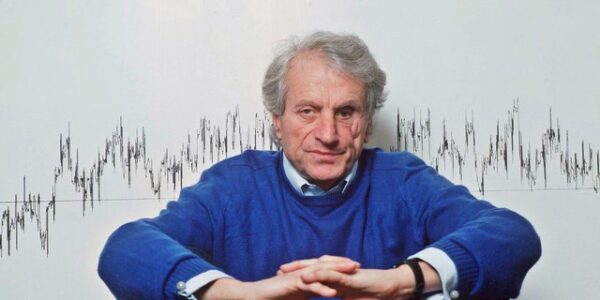For those of you who have already read my Xenakis quote from yesterday, you may be wondering why I chose it. Given that there are plenty of series on this week’s concert, doesn’t the quotation of such a statement seem a bit self-defeating from a marketing standpoint?
Over the last ten years or so, we’ve seen something of a move to dismiss modernist music as a historical aberration. The problems with this movement are too numerous to count in a single blog post, but one of the primary problems is that the very notion that one can describe vast chunks of music of the 20th c. in one word and dismiss all of it in two sentences is patently absurd.
KW Conducts Akrata with CMEW
Xenakis was a composer as much “in the hood” as anyone of his generation- like Boulez and Stockhausen, he studied with Messiaen and his music figured prominently in the concerts that established the modernist repertoire. This little quote however gives us a gentle reminder that even in its heyday, serialism was never the one true path, that creative artists argued and debated and fought for their own voices. Even in its supposed heydey, good friends argued strenuously over what it meant to be a modernist.
“Akrata,” (the title means “pure”, although there is also a small village called Akrata in Greece) is a fascinatingly disciplined piece. As and expression of “pure,” Xenakis writes only one pitch at a time for each player. Nobody ever has a melody or even what we might normally think of as a motive.
These single pitches are articulated in interesting ways- as repeated 16th notes, as flutter-tonguing, as long sustained notes, and as “beats” created by playing a unison slightly out of tune (varying the speed of the beat by changing the degree of out-of-tune-ness.) Art is all about working within limits- what Xenakis achieves within these narrow limits is astounding and affecting.
Growing up in America when I did, Xenakis was very much a composer talked about and not listened to. I got interested in performing his music as a result of Radio 3’s focus on him, and the contemporaneous Xenakis festival in London, not long ago. His music is, to generalize, alien but accessible, rigorously mathematical yet incredibly passionate, modernist yet routed in classical history (many of his pieces related to Greek historical ideas or ideals) and really, really intense.
I find that his pieces really arrive- they are more than the sum of their parts, so hearing a short snippet of his music out of context probably won’t convert the timid, and might even do more harm than good, because his is a very intense sound world. However, heard as a whole, a piece like Akrata has a powerful effect on the listener.
Xenakis, who was also an extraordinary architect, led an amazing life and left a huge body of work. The “Friends of Xenakis” website has a wealth of information, and is really worth exploring. There are also some good clips on YouTube (although excerpts suit his music poorly), and there is some interesting commentary in the course of the brilliant Frank Zappa documentary Peefeeyatko (which has sadly been removed from YouTube) .

Recent Comments